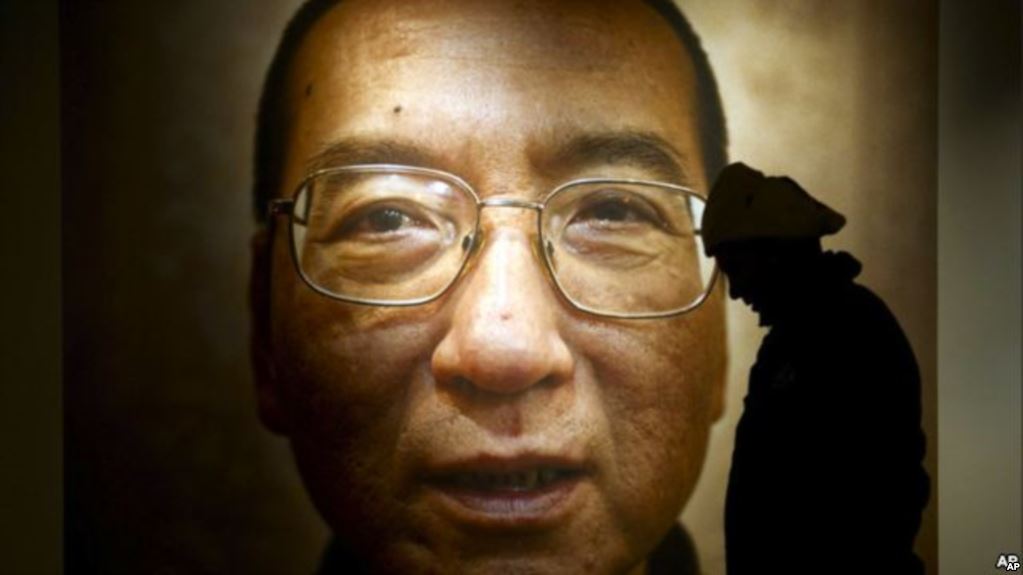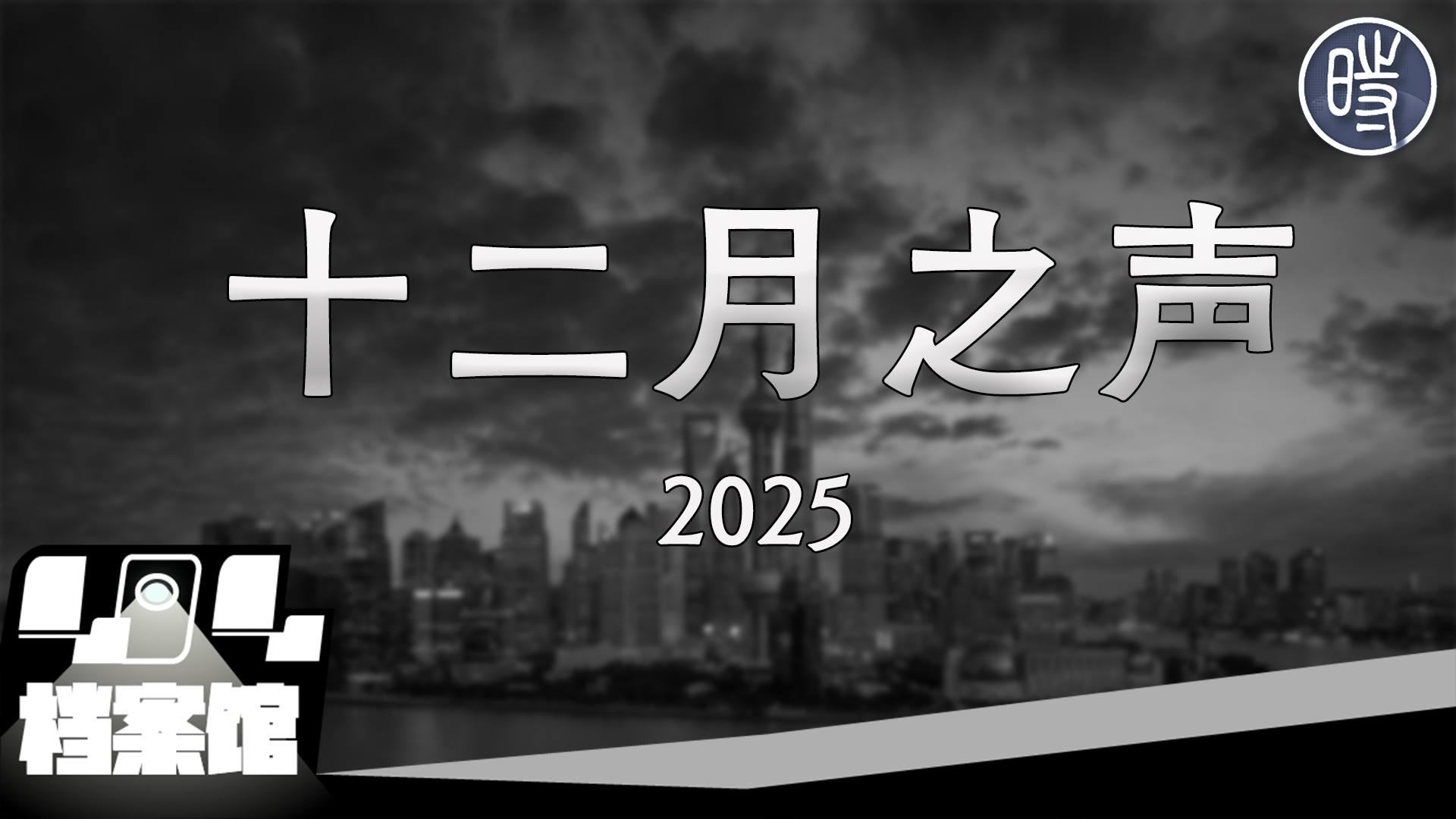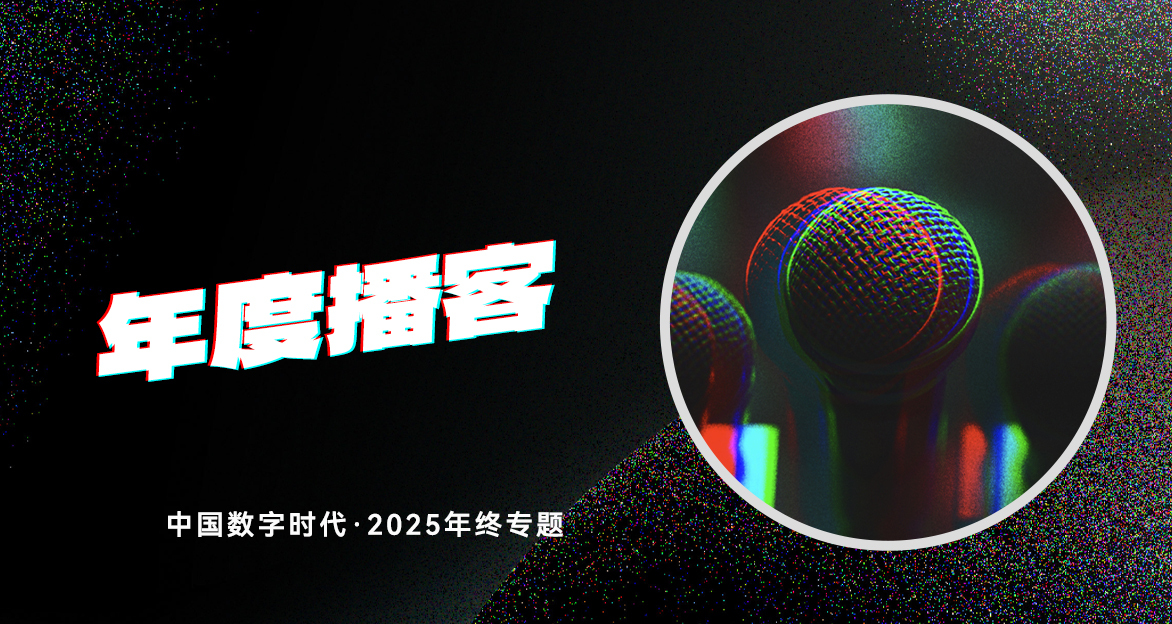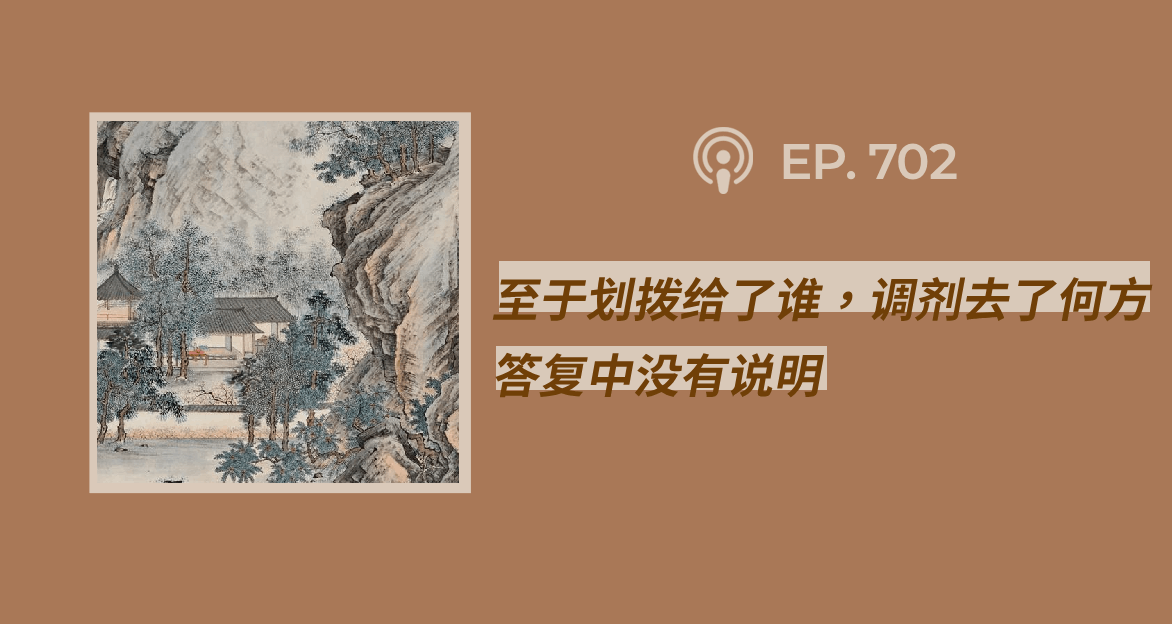中国民主转型运动的先驱刘晓波先生,于公元二零一七年七月十三日,因肝癌被延误治疗而逝世于中国沈阳,享年六十一岁。刘晓波先生在过去三十余年中,积极致力于中国的民主转型事务,为中国人的民主、自由与人权事业,宵衣旰食呕心沥血,并因此四度系狱累计长达十五年。他是当代中国自由与人权运动的代言人,是一座标志着中国人为自由而不懈奋斗的丰碑。
刘晓波先生一九五五年十二月廿八日生于中国长春。一九七七年入吉林大学中文系,一九八二年入北京师范大学中文系,一九八八年获文艺学博士并留校任教,系当代中国第一个文艺学博士。一九八九年,刘晓波参与六四民主运动,被捕入狱,一九九一年一月出狱。一九九五年五月,因起草《六四六周年呼吁书》再次被捕,一九九六年二月获释。一九九六年十月,因起草《双十宣言》三度被捕,一九九九年十月获释。入狱间隙在北京从事政论写作。直至二零零八年十二月因《零八宪章》四度系狱,被判刑十一年,并在狱中荣膺二零一零年诺贝尔和平奖。
刘晓波先生是一九八零年代中国思想启蒙运动的先行者。博士在读期间,刘晓波多次发表文章及公众演讲,从文学进入文化、思想领域,进而至哲学领域。《选择的对话》、《形而上学的迷雾》等著作,不断阐发其最彻底的自由思想与对普世价值的追求。其博士论文《审美与人的自由》,使得我们对于自由的理解深入到哲学层次,从而彻底否定共产意识形态及其统治。他在一九八零年代提出政治民主化、经济自由化,文化多元化的主张,远超八十年代的思想启蒙的高度。
刘晓波先生是六四民主运动的亲历者、幸存者。一九八九年四二六社论发表次日,北京当局武装镇压已见端倪之时,刘晓波毅然放弃哥伦比亚大学访学,孤身飞返危城,立即投入广场运动之中,并撰写多封呼吁当局启动民主改革的公开信,发表《六二绝食宣言》,深获广场学生信任。在北京当局出动武装镇压民主运动时,刘晓波于六月四日凌晨与军方谈判,带领数千大学生自枪口下安全撤离,避免了更大的流血冲突。他自称是“共产主义末日到来之际的幸存者和见证人”。
刘晓波先生是六四精神的守护者。在六四后万马齐喑的日子里,刘晓波穷十数年之功,孜孜不倦协助天安门母亲群体整理资料,撰写或修改声明,协调安排诸多事务,呼吁国内外媒体关注天安门母亲群体。他是天安门母亲群体最忠实可靠的同行者。每年六四他都会以自己的方式纪念这个日子,他在物质及精神上帮助了诸多八九一代。
刘晓波先生是中国自由写作共同体的组织者。刘晓波二零零三年至二零零七年担任独立中文笔会第一、二届会长,并担任网刊《民主中国》之主编。在他的感召下,许多年轻的政治异议写作者加入独立中文笔会,积极关注在中国大陆写作者的言论及出版自由。在刘晓波的主持之下,笔会活动重点向海内倾斜,创立了立足于中国大陆的“自由写作共同体”,并在北京成功举办两届自由写作颁奖礼,使得笔会成为举足轻重的民间组织。
刘晓波先生是中国零八宪章运动的领导者。刘晓波是《零八宪章》的主要的修订者、组织者,并几乎为此付出生命代价。《零八宪章》是一份关于未来中国政治的蓝图,一份和平转型的建设性文本,是以民间为主体构建的宪政共和的集体发声。刘晓波以自己的人格魅力与影响力,征集到首批三百余社会知名人士的签名。宪章运动立即遭到北京当局的残酷打压,刘晓波一身承担,锒铛入狱,从而荣膺诺贝尔和平奖。
刘晓波先生是当代中国最重要的社会活动家和独立知识分子。他在六四后,承担了中国政治反对运动的组织化工作。他多次介入人权运动与维权运动,关注狱中政治犯、作家及良心犯家属,纵横于体制内外,有意识的构建政治反对的人际网络。他关心下一代青年作家和异议知识分子,为他们创造良好的发展条件。他放弃了自己的学术研究,以积极干预的姿态,为中国弱势群体做不平之鸣。
刘晓波先生是当今中文世界最重要的政论家和诗人。在过去的二十余年里,刘晓波写了大量关注中国现实问题的政论文章,他以深厚的政治与哲学功底,鞭辟入里、振聋发聩地分析当代中国问题之根本所在。他同时亦是一个浪漫奔放的诗人,下笔绣辞,扬手文飞,在文学领域驰骋纵横。美之追求与人之解放,其理一也。刘晓波已出版的著作有十六部之多。
刘晓波先生是中国民主转型运动的殉道者。他以一己之力,垂三十年而不辍,百折不挠地践行着自己的理念与信仰。正如他自己所说,自由不只是言说,而是践行。自由不昌,则无现代文明可言。他对当代中国的民主化、现代化、文明化进程念兹在兹,有生之日皆其奋斗之年。因此,刘晓波历年荣膺全球各国相关奖项如海尔曼人权奖等,达十四项之多,其筚路蓝缕承先启后之功,举世罕有。
刘晓波先生是中国悲剧中的道义巨人。他认为,“为了所有人都有自私的权利,必须有一个人无私地牺牲。为了争取到一个消极自由,必须有一种积极抗争的意志。一个殉难者的出现就会彻底改变一个民族的灵魂。”刘晓波在多年的精神打压和身体监禁之中,愈加温和、宽容、谦卑,也使得他的感召力量愈加强大,无远弗届。
呜呼!刘晓波先生之逝,为吾人、吾国之大恸。昊天不吊,折我赤子。河山改色,日月韬光。先生之恙,为系狱所生,吾人当为先生纪其事;先生之萎,为中国而死,吾人当为先生续其志。先生身后之中国,当为先生一哭。
嗟大志之所存,故表节而不忘。临遗籍以慷慨,布兹文以哀伤。
自由刘晓波工作组
Obituary For Mr. Liu Xiaobo
A pioneer of the Chinese democratic transition movement, Mr. Liu Xiaobo, passed away on 13 July 2017 in Shenyang, China because of delayed treatment of his liver cancer, at age 62. In the past thirty odd years Mr. Liu Xiaobo had been vigorously committed to the democratic transition of China; he had worked diligently 1 and painstakingly 2 for the cause of democracy, freedom and human rights of the people of China, and had been sent to prison four times with a total of 15 years. He was one of the most important voice of the contemporary freedom and human rights movement in China, and a monument that symbolised the Chinese people’s relentless struggle for freedom.
Mr. Liu Xiaobo was born in Changchun, China on 28 December, 1955. In 1977 he was admitted as an under-graduate student to the Department of Chinese, Jilin University, and in 1982 he was admitted as a graduate student to the Department of Chinese, Beijing Normal University. In 1988 he earned his doctoral degree in Literature and Arts, and stayed on at the University as a teacher. He was the first doctor degree holder in Literature and Arts in contemporary China. In 1989, Mr. Liu Xiaobo participated in the June 4th democratic movement, and as a result was arrested and jailed. He was released in January, 1991. In May, 1995, Mr. Liu was arrested again for drafting “Appeal Letter on the 6th anniversary of June 4th”, and was released in February 1996. In October, 1996, he was thrice arrested for drafting “October 10th Declaration”, and was released in October, 1999. In between imprisonments he spent his time writing political commentary in Beijing. In December 2008 he was arrested for the fourth time for “Charter 08”, and sentenced to 11 years imprisonment. He was awarded the Nobel Peace Prize in 2010 while in jail.
Mr. Liu Xiaobo was a forerunner in the Chinese Enlightenment Movement in the 1980s. During his studies, Mr. Liu had published numerous articles and made various public speeches, starting from the field of literature, moving towards culture and thoughts, and onwards to philosophy. His publications such as “Dialogue on Choice” and “Metaphysical Fog”, had elucidated the true meaning of freedom of thought and the pursuit of universal values. His doctoral thesis “Aesthetics and the Freedom of Human Beings” deepened our understanding of freedom on a philosophical level, and was a complete rejection of the communist ideology and regime. The ideas he proposed in the 1980s – democratization of politics, liberalization of economy, and diversification of culture – were way more advanced than the level of common understanding reached during the Enlightenment in the 80s.
Mr. Liu Xiaobo was a witness and a survivor of the June 4th Democratic Movement. On the day following the publication of the April 26th Editorial 3 in 1989, and when signs of the subsequent military crackdown were emerging, Mr. Liu Xiaobo resolutely decided to give up his position as a visiting scholar at the Colombia University and headed back to the dangerous city of Beijing by himself. He immediately threw himself into the movement on Tiananmen Square; he wrote various public letters calling for the authorities to initiate democratic reform and issued the “June 2nd Hunger Strike Declaration”, gaining the trust of the students on Tiananmen Square. When the Beijing authorities sent out the military to suppress the democratic movement, Mr. Liu Xiaobo negotiated with the military on the early morning of June 4th, securing the safe passage of thousands of students right in front of the guns of the military, avoiding further bloodshed. He called himself the survivor and witness of the doomsday of communism.
Mr. Liu Xiaobo was a guardian of the June 4th spirit. In the days following the June 4th Massacre, when everyone kept their mouths shut, Mr. Liu Xiaobo spent over a decade in the tireless collection of information for the Tianamen Mothers. He helped the Tiananmen Mothers in the drafting and editing of statements, in coordination, and in calling for both local and overseas media to pay attention to the plight of the Tiananmen Mothers. He was the most steadfast and dependable companion of the Tiananmen Mothers. Every year he would mark the anniversary of June 4th in his own way. He had also helped many who still suffered from having participated in the 1989 Democratic Movement, both materially and spiritually.
Mr. Liu Xiaobo was the facilitator of the community of free writers in China. From 2003 to 2007 Mr. Liu Xiaobo was the First and Second President of the Independent Chinese Pen, and the chief editor of the online magazine “Democratic China”. Inspired by Mr. Liu Xiaobo, many young dissident writers joined the Independent Chinese Pen, and actively engaged in the freedom of speech and publication of writers inside China. Under Mr. Liu Xiaobo’s leadership, the Independent Chinese Pen leaned its focus inside China, forming a community of free writers based in Mainland China. The Independent Chinese Pen also successfully held prize giving ceremony for the Free Writing Prize in Beijing for two times, making it a significant civil organization.
Mr. Liu Xiaobo was the leader of the Charter 08 Movement of China. Mr. Liu Xiaobo was the main reviser and organiser behind the Charter 08, and he almost paid for it with his life. Charter 08 is a political blueprint for future China, a constructive document on peaceful transition, and a collective stance of the civil society for a constitutional republic. Using his charisma and influence, Mr. Liu Xiaobo collected the first batch of more than 300 signatories of renowned individuals in the society. The Charter Movement was immediately and cruelly suppressed by the Communist regime, Mr. Liu Xiaobo shouldered the responsibility for everyone, was jailed as a result, and was subsequently awarded the Nobel Peace Prize in 2010.
Mr. Liu Xiaobo was the most important social activist and independent intellectual in contemporary China. After the June 4th Massacre, he shouldered the task of organising an opposition movement in China. He was involved in human rights and rights defending movements; he was concerned about political prisoners, writers and family members of prisoners of conscience; he worked both within and outside the establishment and tried consciously to build a network of political opposition. He cared much about younger generation of writers and dissident intellectuals, and created conducive conditions for their development. He had given up his own academic research to actively intervene and voice out for the disadvantaged groups inside China.
Mr. Liu Xiaobo was the most important political commentators in the contemporary Chinese speaking world. In the past twenty odd years, Mr. Liu Xiaobo had written many political commentaries on practical problems of China. Using his profound knowledge in politics and philosophy, he had written thorough, penetrating and enlightening analysis of the root of the problems facing contemporary China. He was at the same time a romantic poet, who wrote with elegance and ease. The pursuit of beauty and the pursuit of human freedom, have at their roots the same logic. To date Mr. Liu Xiaobo had already published 16 books.
Mr. Liu Xiaobo was a martyr of the democratic transition movement in China. Persisting for over thirty years, he had lived out his values and beliefs despite the many obstacles and setback he had faced. In his own words, freedom is not about words but about action. With no freedom, there is no modern civilisation. The democratisation, modernisation and civilisation of contemporary China is the one thing that was always on his mind, and the cause that he had always been fighting for during every day of his life. As a result Mr. Liu Xiaobo had been awarded a total of 14 honours and prizes from around the world throughout the years, including the Hellman Human Rights Award. His contributions in paving the path as a trailblazer and inspiring the younger generation to carry on was second to none in the whole world.
Mr. Liu Xiaobo was a moral giant in the tragedy of China. He had once stated, “In order that everyone can enjoy the right to be selfish, there must be one who sacrifices himself selflessly. In order to achieve negative liberty, one must have the determination to fight positively. The birth of a martyr would completely change the soul of a people.” Throughout the long years of mental suppression and physical imprisonment, Mr. Liu Xiaobo had only become all the more gentle, tolerant and humble, and this in turn made his ability to inspire others all the more powerful and far-reaching.
Alas! The passing of Mr. Liu Xiaobo causes great grief to our people and our country. The Gods had withheld their blessings and taken away the one of pureness and sincerity. Because of his death, rivers and mountains have changed their colour, and the sun and moon have lost their light. Mr. Liu’s disease was a disease caused by imprisonment, and we shall record his deeds for him; Mr. Liu’s death was a death for China, and we shall carry on his fight. A China left behind by Mr. Liu is one which shall cry for him.
Alas what great ambition there was, and we must mark it for remembrance. Reading the passionate words he had left behind, we issue this obituary to show our grief.
Freedom for Liu Xiaobo Action Group
—
Note 1. The idiom 宵衣旰食 literally means that one woke up before day break to work, and only eat after meal time is passed.
Note 2. The idiom 呕心沥血 literally means working till one spits out one’s heart and drips out blood.
Note3. The April 26th Editorial is a strongly worded editorial condemning the student movement then brewing in Beijing.














